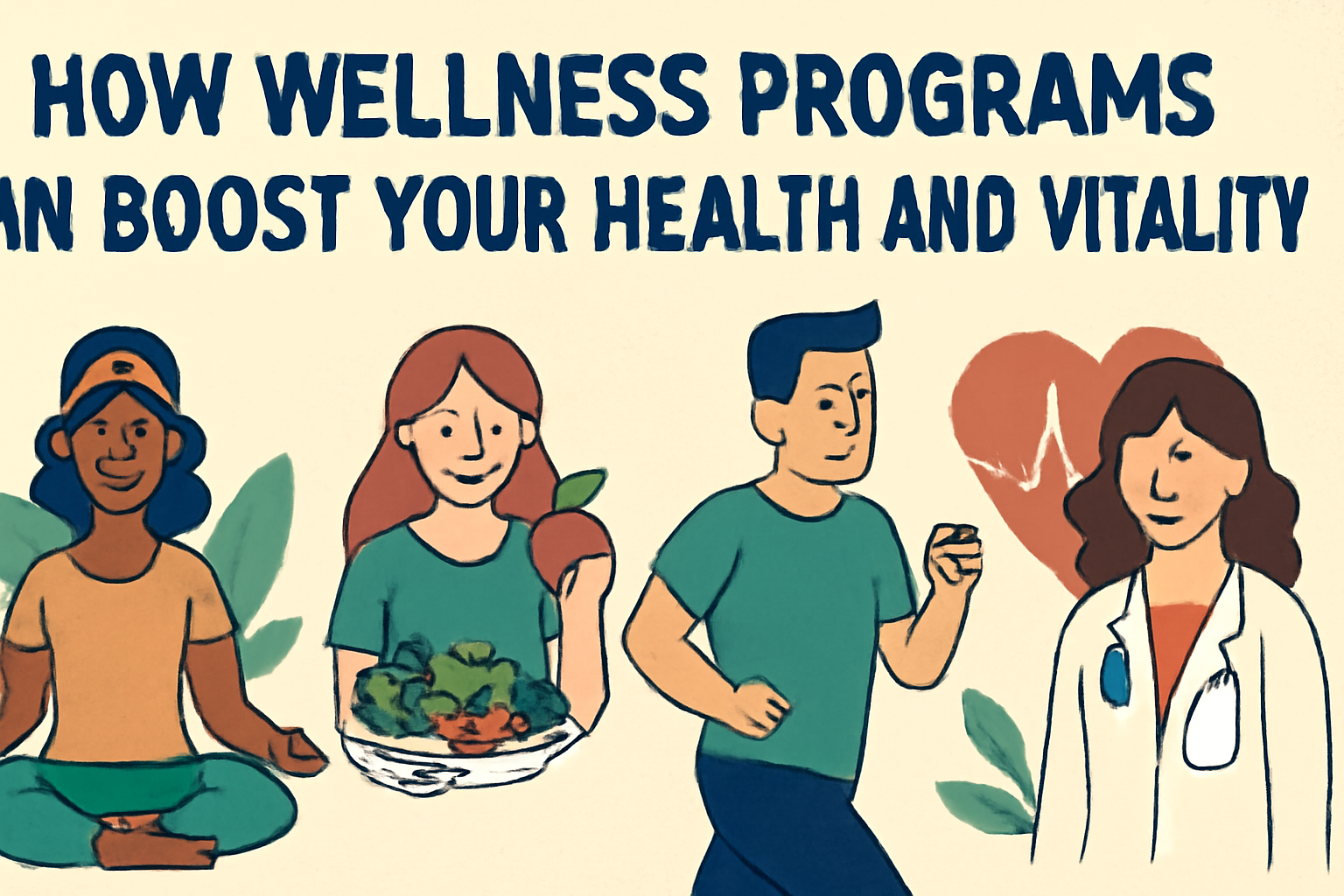Boost Your Energy and Vitality with Nutritional Solutions

In our fast-paced world, maintaining high energy levels and overall vitality can be a challenge. With the constant demands of work, family, and personal pursuits, it’s easy to feel drained and fatigued. However, incorporating the right nutritional solutions into your daily routine can make a significant difference in how you feel and perform. This article will explore various ways to boost your energy and vitality through effective nutrition, lifestyle changes, and natural supplements.
Understanding Energy and Vitality
Before diving into specific nutritional solutions, it’s important to understand what energy and vitality mean. Energy refers to the capacity to do work, which in the context of the human body, translates to the ability to perform physical and mental activities. Vitality, on the other hand, is a broader concept that encompasses overall health, wellness, and a sense of well-being.
The Role of Nutrition in Energy and Vitality
Nutrition plays a crucial role in maintaining energy levels and vitality. The food we eat provides the essential nutrients our bodies need to function optimally. Here are some key nutrients and dietary components that contribute to sustained energy and overall vitality:
- Carbohydrates: Carbohydrates are the body’s primary source of energy. They are broken down into glucose, which is used by cells for energy. Opt for complex carbohydrates like whole grains, vegetables, and fruits, which provide a steady release of energy.
- Proteins: Proteins are essential for the repair and growth of tissues. They also play a role in energy production, particularly during prolonged physical activity. Include lean meats, fish, beans, and legumes in your diet.
- Fats: Healthy fats are a concentrated source of energy. They are also important for the absorption of fat-soluble vitamins (A, D, E, and K). Incorporate sources of healthy fats such as avocados, nuts, seeds, and olive oil.
- Vitamins and Minerals: Micronutrients like B vitamins, iron, magnesium, and potassium are vital for energy production and maintaining overall health. Ensure a balanced diet rich in fruits, vegetables, whole grains, and lean proteins to get these essential nutrients.
Nutritional Strategies for Boosting Energy
1. Balanced Meals and Snacks
Eating balanced meals and snacks throughout the day helps maintain steady energy levels. A balanced meal includes a mix of carbohydrates, proteins, and fats. Here are some tips for creating balanced meals:
- Breakfast: Start your day with a nutritious breakfast that includes whole grains, proteins, and healthy fats. For example, a bowl of oatmeal topped with nuts and berries or a smoothie with spinach, banana, and almond milk.
- Lunch and Dinner: Include a variety of vegetables, lean proteins, and whole grains. A salad with grilled chicken, quinoa, and a variety of colorful vegetables is a great option.
- Snacks: Choose healthy snacks like yogurt with fruit, a handful of nuts, or carrot sticks with hummus to keep your energy levels stable between meals.
2. Hydration
Staying hydrated is essential for maintaining energy levels. Even mild dehydration can lead to fatigue and decreased concentration. Aim to drink at least eight glasses of water a day, and more if you are physically active. Herbal teas, coconut water, and water-rich fruits and vegetables (like cucumbers and watermelon) can also help keep you hydrated.
3. Avoiding Sugar Crashes
While sugary snacks and beverages can provide a quick energy boost, they often lead to energy crashes. This is because simple sugars cause a rapid spike in blood glucose levels, followed by a sharp drop. Instead, choose foods that provide sustained energy, such as whole grains, fruits, and nuts.
Lifestyle Changes for Enhanced Vitality
In addition to proper nutrition, certain lifestyle changes can significantly boost your energy and vitality. Here are some effective strategies:
1. Regular Physical Activity
Exercise is one of the most effective ways to enhance energy levels and overall vitality. Physical activity increases blood flow, improves cardiovascular health, and releases endorphins, which are natural mood lifters. Aim for at least 30 minutes of moderate exercise most days of the week. Activities like walking, cycling, swimming, and yoga are great options.
2. Quality Sleep
Getting enough quality sleep is crucial for energy and vitality. During sleep, the body repairs and regenerates tissues, consolidates memories, and recharges the brain. Aim for 7-9 hours of sleep per night and establish a regular sleep schedule. Create a relaxing bedtime routine and ensure your sleep environment is conducive to rest.
3. Stress Management
Chronic stress can drain your energy and negatively impact your health. Finding effective ways to manage stress is important for maintaining vitality. Techniques such as meditation, deep breathing exercises, and mindfulness can help reduce stress levels. Additionally, engaging in hobbies, spending time with loved ones, and taking breaks throughout the day can also help manage stress.
4. Avoiding Stimulants
While caffeine and energy drinks can provide a temporary energy boost, relying on them can lead to dependency and energy crashes. Limit your intake of caffeine and avoid energy drinks that are high in sugar and artificial ingredients. Instead, focus on natural ways to boost your energy through proper nutrition and lifestyle changes.
Natural Supplements for Energy and Vitality
In addition to a balanced diet and healthy lifestyle, certain natural supplements can help boost energy levels and enhance vitality. Here are some supplements to consider:
1. Adaptogens
Adaptogens are herbs that help the body adapt to stress and improve overall health. Some popular adaptogens include:
- Ashwagandha: Known for its ability to reduce stress and improve energy levels.
- Rhodiola Rosea: Helps enhance physical and mental performance and reduce fatigue.
- Holy Basil: Supports the body’s response to stress and promotes mental clarity.
2. B Vitamins
B vitamins, particularly B12 and B6, play a crucial role in energy production. They help convert food into energy and support the nervous system. A deficiency in B vitamins can lead to fatigue and decreased energy levels. Consider taking a B-complex supplement if you suspect you are not getting enough from your diet.
3. Iron
Iron is essential for the production of hemoglobin, which carries oxygen to the body’s cells. A deficiency in iron can lead to anemia, characterized by fatigue and low energy levels. Women, in particular, are at a higher risk of iron deficiency. Include iron-rich foods in your diet such as lean meats, beans, lentils, and spinach, or consider an iron supplement if needed.
4. Magnesium
Magnesium is involved in over 300 biochemical reactions in the body, including energy production. A deficiency in magnesium can cause fatigue, muscle cramps, and poor sleep. Include magnesium-rich foods in your diet such as nuts, seeds, whole grains, and leafy green vegetables, or consider a magnesium supplement.
5. Coenzyme Q10 (CoQ10)
CoQ10 is a compound that helps generate energy in cells. It is also a powerful antioxidant that protects cells from damage. CoQ10 levels decrease with age, and supplementing with it can help improve energy levels and overall vitality.
Creating a Personalized Plan
Boosting your energy and vitality is a holistic process that involves a combination of proper nutrition, lifestyle changes, and, if necessary, natural supplements. Here are some steps to create a personalized plan:
- Assess Your Current Lifestyle: Take stock of your current eating habits, physical activity levels, sleep patterns, and stress management techniques.
- Set Realistic Goals: Identify specific areas where you want to improve and set achievable goals. For example, aim to incorporate more whole foods into your diet or establish a consistent exercise routine.
- Create a Balanced Diet Plan: Plan your meals and snacks to ensure they are balanced and provide sustained energy. Include a variety of nutrient-dense foods from all food groups.
- Incorporate Regular Exercise: Choose physical activities that you enjoy and can commit to regularly. Mix different types of exercises to keep it interesting and target different aspects of fitness.
- Prioritize Sleep and Stress Management: Establish a regular sleep schedule and create a bedtime routine that promotes relaxation. Find stress management techniques that work for you and make them a regular part of your routine.
- Consider Natural Supplements: If you feel that your diet and lifestyle alone are not enough to boost your energy and vitality, consider adding natural supplements to your regimen. Consult with a healthcare professional before starting any new supplements to ensure they are safe and appropriate for you.
Monitoring and Adjusting Your Plan
Once you have created your personalized plan, it’s important to monitor your progress and make adjustments as needed. Keep track of how you feel, your energy levels, and any changes in your overall vitality. Here are some tips for effective monitoring:
- Keep a Journal: Write down what you eat, your exercise routine, sleep patterns, and stress levels. Note any changes in your energy levels and how you feel overall.
- Listen to Your Body: Pay attention to how your body responds to different foods, activities, and supplements. Make adjustments based on your observations.
- Seek Professional Guidance: If you are unsure about any aspect of your plan or if you experience persistent fatigue or health issues, seek guidance from a healthcare professional. They can provide personalized advice and help you make necessary adjustments.
Conclusion
Boosting your energy and vitality is a multifaceted process that involves proper nutrition, lifestyle changes, and potentially natural supplements. By understanding the role of different nutrients, creating balanced meals, staying hydrated, managing stress, and incorporating regular physical activity, you can significantly enhance your energy levels and overall sense of well-being. Remember to monitor your progress and make adjustments as needed to ensure you are on the right track. With dedication and consistency, you can achieve and maintain high energy levels and vibrant health.
